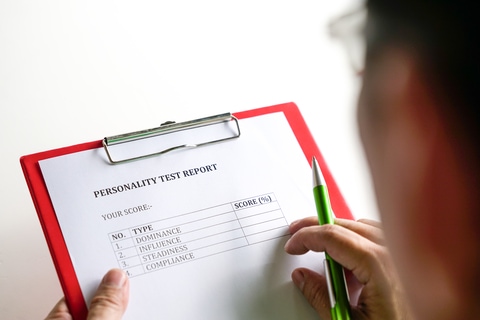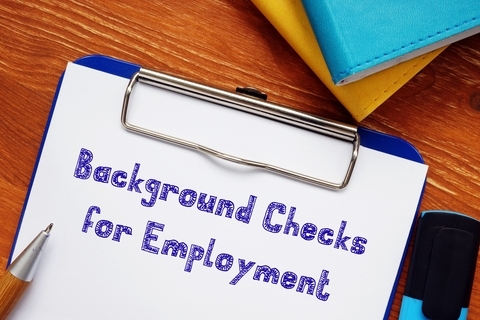Pre-employment screening in Japan is subject to restrictions such as the Employment Security Act and the guidelines of the Minister of Health, Labor, and Welfare.
Therefore, you need to be familiar with legitimate research methods in Japan. You need to get a survey consent form from the candidate.
Investigation of suitability and ability
You can research the aptitude and abilities of candidates. But you can’t do social class research.
Also, you cannot investigate ideology, religion, or trade unions.
As a specific survey flow, you will need to have your recruitment candidate submit a survey agreement in addition to your resume.
Individual Power of Attorney
Also, for a careful inquiry, you will need to have the potential candidate submit a power of attorney for various disclosures.
When you need to check your educational background and qualifications, you may want to have your recruiter submit a diploma or qualification certificate. Then, it will be easier for you to confirm the facts. It is easier to verify the graduation certificate you have submitted than to request a diploma certificate on behalf of your proxy.
Various Disclosure Requests
Now, we will describe other personal information that can be queried by third-party disclosure.
Basically, for every inquiry, you need to prepare the following documents-:
- A copy of your identity card
- Power of Attorney (use of specified power of attorney may be required)
You need a copy of an ID and a power of attorney from the candidate to obtain a diploma or qualification certificate.
If you are looking for a job at your previous employer, you must have obtained a survey agreement from the candidate.
Information Sources
Below are the information sources that can be collected by third -party disclosure requests.
It is theoretically possible to introduce the following information sources if you have a copy of the power of attorney and a copy of your ID card. However, this is a theoretical problem, and if you force these methods to recruit candidates, in some cases, it could lead to a dispute with a Japanese Bureau depending on the type of job employed.
Criminal Records
Police criminal records are strictly confidential. Even the person himself cannot receive information disclosure.
However, although not generally known, there are exceptions.
You can obtain a criminal record (police certificate) only if you are an immigrant or work overseas.
Police biographies are euphemistically called “Travel Documents.”
The Japanese government knows that the certificate of criminal records is the basis of background investigation overseas, although it is confidential in Japan. For this reason, only those who plan to emigrate or work abroad can obtain criminal records.
Please be advised to refer to the site of NPA (National Police Agency)
Metropolitan Police Department Website Travel Certificate (Criminal Background Certificate) https://www.keishicho.metro.tokyo.jp/smph/tetsuzuki/toko/toko.html
Please note a third party can never apply the certificate of criminal records due to the nature described above. The person, himself/herself, has to attend a local police station or a Japanese embassy physically to apply it.
Given that criminal records cannot be obtained from direct sources (police), we have no choice but to use Adverse Media Search as an alternative to checking criminal records.
Since we are unable to obtain criminal records form the direct source (police), we have no choice but a criminal record check on the media search
Another alternative solution is to conduct chacks about anti-social forces.
The Japanese government defines anti-social forces as “groups or individuals who pursue economic interests using violence, power, and fraudulent techniques.”
Checks of anti-social forces are also done, in principle, through an adverse media search.
Litigation Records
The lawsuit record is open to the public in principle, but the Government of Japan does not allow the lawsuit records to be referred for background checks.
Only the judgment records of the Supreme Court are open to the public. The Supreme Court judgment can be searched for on the court website.
Litigation records other than the Supreme Court precedents can be accessed only if you can provide: the case number, or both names of the plaintiff and the defendant.
The court lists fundamental information; incident #, the names of the defendant and the plaintiff, on the day of the on-going trials. But such information is only available on the same day. Past records are not searchable.
In order to compile a comprehensive database including the case number and the names of the plaintiff and the defendant, it is necessary to go to the court every day and collect the case information. To continue this work every day requires patience and a massive financial background.
The only alternative method to know the case number and the names of defendants and plaintiffs is running an adverse media search. If the litigation is covered by the media, the articles will show the case number or the names of the defendant and the plaintiffs.
Driving Records
The following organization is the source of driving records. A third party disclosure request is possible with a copy of the ID of the target and a power of attorney.
Japan Safe Driving Center 自動車安全運転センター
https://www.jsdc.or.jp/certificate/tabid/109/Default.aspx
Credit Records
The following three organizations are credit information sources.
A third party disclosure request is possible with a copy of the ID of the target and a power of attorney.
CIC
CREDIT INFORMATION CENTER
https://www.cic.co.jp/mydata/index.html
JICC
日本信用情報機構
Japanese Bankers Association
銀行協会
全国銀行個人信用情報センター
https://www.zenginkyo.or.jp/pcic/open/
Bankruptcy Records
The National Gazette is the source of information for bankruptcy records. The official gazette is public information.
Kanpou 官報
Laws and Regulations About Recruitments In Japan
Bankruptcy Records
The National Gazette is the source of information for bankruptcy records. The official gazette is public information.
Kanpou 官報
Employment Security Act
(Treatment of Personal Information of Job Seekers, etc.)
Article 5-4 (1) Public Employment Security Offices, etc. shall, in collecting, retaining and using the personal information of job seekers, those who intend to become workers in response to recruitment and supplied workers (hereinafter referred to as “personal information of job seekers, etc.” in this Article) with respect to their businesses, collect the personal information of job seekers, etc. within the scope necessary to achieve the purpose of their businesses and retain and use the same within the scope of the purpose of said collection; provided, however, that this shall not apply in a case where the person concerned consents or there is another good cause.
https://www.mhlw.go.jp/bunya/koyou/dl/h241218-03.pdf
Guidelines of the Minister of Labor, Ministry of Labor Public Notice No. 141 of 1999
Matters concerning Article 5-4 of the Act (Handling of Personal Information of Job Seekers, etc.)
1 Collection, Storage, and Use of Personal Information
1. Employment placement business providers, etc. shall collect personal information of job seekers, etc. within the scope of the purpose of their businesses (hereinafter simply referred to as “personal information”) and shall not collect the following personal information: Provided, however, that this shall not apply to cases in which a special professional necessity exists or is indispensable for the achievement of the purpose of business and in which the purpose of collection is indicated and collected from the employee.
(a) Matters that may cause social discrimination, such as race, ethnicity, social status, family origin, registered domicile, place of birth, and other matters.
(b) Ideas and beliefs;
(c) The status of participation in a labor union;
2. When an employment placement business provider, etc. collects personal information, it shall take legal and fair measures such as collecting such information directly from the person in question or collecting such information from persons other than the person in question with the consent of the person in question.
https://kouseisaiyou.mhlw.go.jp/consider.html
Ministry of Health, Labour and Welfare
“Matters to be considered when selecting employees”
14 items that may lead to employment discrimination
- Matters related to “Registered domicile/place of birth”
- Matters pertaining to “family” (such as occupation, personal relationship, health, medical history, position, educational background, income, assets, etc.)
- Matters related to “Housing status” (e.g. room coverage, number of rooms, type of residence, neighboring facilities)
- Matters related to “living environment, home environment, etc.”
- Religious Matters
- Matters related to “supportive parties”
- Matters related to “Life View, Life Creed, etc.”
- Matters relating to “dignified persons”
- Matters related to “thought”
- Matters related to “labor unions (membership status, activity history, etc.)” and “social activities such as student campaigns”
- Matters related to “subscribed newspapers, magazines, favorite books, etc.”
- Implementation of “background checks, etc.”
- Use of the application form (company form) that includes items not based on the nationwide uniform application form for high schools and the curriculum vitae of the JIS standard (form example)
- Implementation of “Medical Examination at the Time of Hiring Selection where Reasonable and Objective Necessity Is Not Reasonable”




